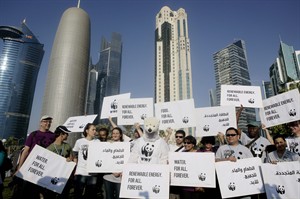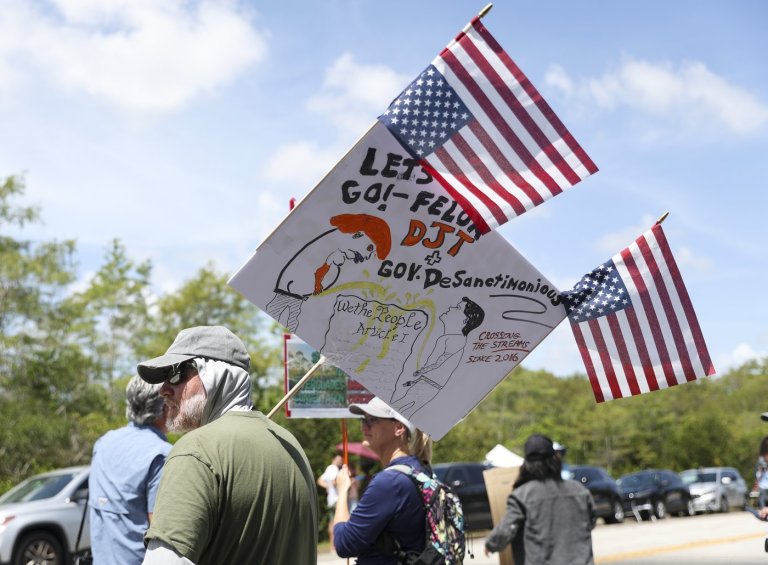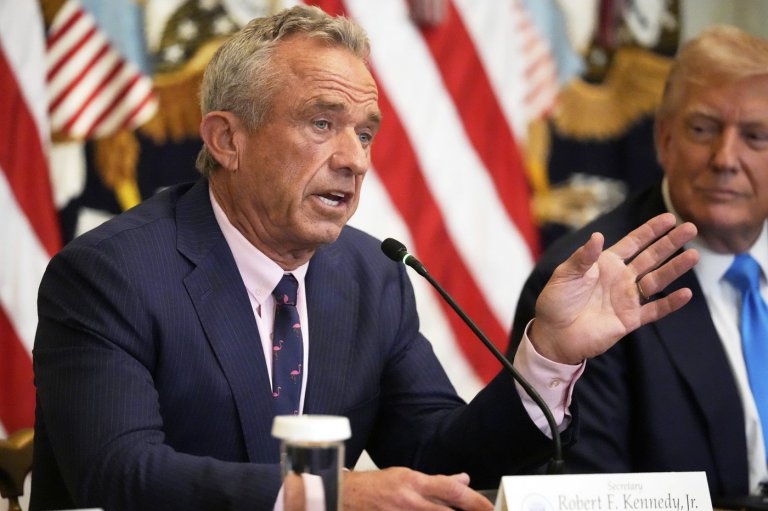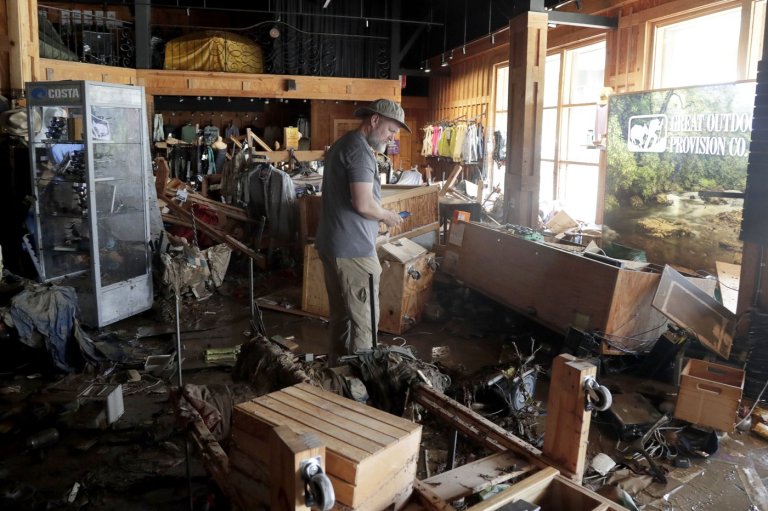
Climate activists stage peaceful march on sidelines of UN talks in Qatar
DOHA, Qatar – A few hundred people marched in a peaceful demonstration Saturday for “climate justice” in Doha, where negotiators from nearly 200 countries are debating about how to slow global warming and help protect the most vulnerable countries from rising seas and other impacts of climate change.
Waving banners saying “Stop climate change” and “Arabs reduce emissions,” the well-behaved crowd marched along the Qatari capital’s Corniche, a waterfront walkway lined by gleaming skyscrapers.
Khalid al-Mohannadi, one of the organizers, noted that “it’s not a protest, it’s a march for peace.”
The march was billed as the first environmental rally ever in the wealthy emirate, which is hosting the two-week U.N. talks aimed at forging a global deal to curb emissions of carbon dioxide and other heat-trapping gases.
Many of those taking part in the March said Arab leaders need to look beyond the political turmoil in the region and address the broader challenge of climate change.
“Governments always talk about economy and stabilizing the country, but you can’t talk about that without talking about climate change, because the Arab region is one of the most impacted regions,” said Sarah Rifaat, an Egyptian activist.
Dangerous warming effects could include flooding of coastal cities and island nations, disruptions to agriculture and drinking water, and the spread of diseases and the extinction of species.
The vast majority of climate scientists say human activity — primarily emissions from the burning of fossil fuels and deforestation — is to blame for the rise in global temperatures seen in recent decades.
Both rich and poor countries say emissions have to be reduced, but don’t agree on how to divide the burden. That dispute and other disagreements have slowed talks on crafting a new global climate treaty, which was originally planned for adoption in 2009 but has now been postponed until 2015.
“We think the Western countries are not serious about cutting emissions,” said Dorchas Moeketsi, a climate activist from the African country of Lesotho. “Their actions are our survival. If they act positively, then we survive; negatively, we perish.”
The U.N. talks are set to shift into higher gear next week, when environment and climate ministers arrive to discuss reining in emissions before the new treaty takes effect and climate financing to help poor countries develop clean energy and adapt to the impact of climate change.
Join the Conversation!
Want to share your thoughts, add context, or connect with others in your community? Create a free account to comment on stories, ask questions, and join meaningful discussions on our new site.



















Leave a Reply
You must be logged in to post a comment.